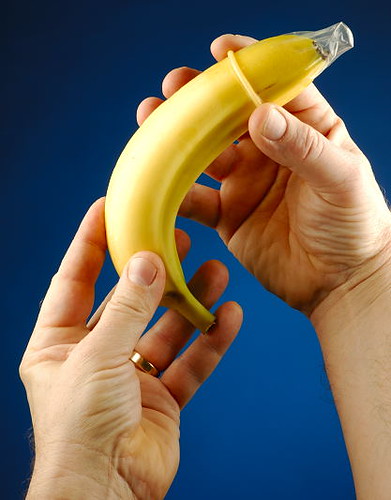According to Wikipedia: Education, in the largest sense, is any act or experience that has a formative effect on the mind, character or physical ability of an individual. In its technical sense, education is the process by which society deliberately transmits its accumulated knowledge, skills and values from one generation to another.
When we think of the word ‘education’, we think: academia, discipline, school, classroom, homework, tests, studying [or cramming]..
 When we think ‘physical education’, we think: manly female gym teacher, locker rooms, goofing off, class without tests..
When we think ‘physical education’, we think: manly female gym teacher, locker rooms, goofing off, class without tests..When we think ‘health education’, we think: awkward lessons about and during puberty, birth control and STDs, smoking, drugs, alcohol, peer pressure..
But what about ‘nutrition education’ [NE]? I mean, unlike the above, nutrition education is still a very new and emerging field/area/subject. After all, it’s only since about the ‘80s—that's a mere 30-some years ago—that the nutritional health of Americans has plummeted, weight sky-rocketing.
Typically, though, NE is associated with learning about healthy eating/eating healthy. Sub-consciously, that translates into die with a T, deprivation, restriction, bland, hunger, guilt, preaching, nagging, rules to break. Realistically, it often translates into type A dietician[?]; blowoff course, or a joke, but an easy A; just knowledge like anything else; lame, or worse, boring; inaction; useless; zero improvement and perhaps further decline in health.
Moreover, because of the term education and the implications of learning, NE is generally thought of/envisioned as occurring particularly on the grounds of an educational setting— ie. school, [organized, do-good] programs, etc.
But wait! What is education again? For one, it is not location-specific. School may be in the business of, but it definitely is not the monopoly. Parents, friends, celebrities, media, people around us are all teachers by their power to influence. That said, education isn’t just about facts or knowledge. What we do with that knowledge, or understanding, and how it affects us, is just as relevant, if not more.
 Girls, for example, learn that they aren’t naturally beautiful and so, fueling a multi-billion $$ industry, they wear makeup, day.in.&.day.out. Kids, for example, learn what’s cool and then themselves, drink, smoke, use, wear, listen, watch, act whatever it is that they learned. What we learn affects our behavior, for better or for worse.
Girls, for example, learn that they aren’t naturally beautiful and so, fueling a multi-billion $$ industry, they wear makeup, day.in.&.day.out. Kids, for example, learn what’s cool and then themselves, drink, smoke, use, wear, listen, watch, act whatever it is that they learned. What we learn affects our behavior, for better or for worse.The premise of nutrition education lies on the same principle: its aim isn’t to look prettier or be cooler, obviously, but [rather the opposite, oops..] to live a more optimal, healthier, happier life/style and is achieved via both knowledge and ‘behavior change’.
Ack, behavior change: I vividly remember my professor preaching this in my intro class to nutrition education. I remember [vocally, oops] only partially agreeing. As an educator, I thought it would be my job to empower others to make better decisions/choices—whether they actually would, though, would be up to them and not within my control.
 I mean, it’s not my job to force feed people [here doesn't come the choo choo of broccoli..] but just be convincing enough that they’ll do it themselves, on their own. *Like*, you could be the best parent in the world but that doesn’t necessarily guarantee your kid won’t turn out to be a criminal. Over the years I guess I’ve come to accept it as true, though: my actions/purpose as an educator is geared toward [un-forceful, yes, but nonetheless] behavior change [for the better].
I mean, it’s not my job to force feed people [here doesn't come the choo choo of broccoli..] but just be convincing enough that they’ll do it themselves, on their own. *Like*, you could be the best parent in the world but that doesn’t necessarily guarantee your kid won’t turn out to be a criminal. Over the years I guess I’ve come to accept it as true, though: my actions/purpose as an educator is geared toward [un-forceful, yes, but nonetheless] behavior change [for the better].But wait! [sorry, again]. These non-optimal [aka. unhealthful] behaviors, who/what are exacerbating them, fueling the fire? Exactly—the real educators.
In the realm of nutrition, this translates into:
 Marketers—think ads/commercials, product placements etc.
Marketers—think ads/commercials, product placements etc.Designers—think product packaging, food styling etc.
Writers—think articles, posts, blurbs [newspapers, magazines, websites].
Producers—think tv shows [news, cooking shows, reality tv, morning tv etc.]
Business(wo/)men—think $$$. They do. And look at the results they get..
Entertainers—think anything remotely interesting enough to catch someone’s attention and good enough to have it stick and play into action.
These are the folks who really have a handle on education— nutrition, health, and all. Currently and unfortunately, those with the actual titles do not.
Public health has to change if the goal is for the health of the public to. Period.
No comments:
Post a Comment